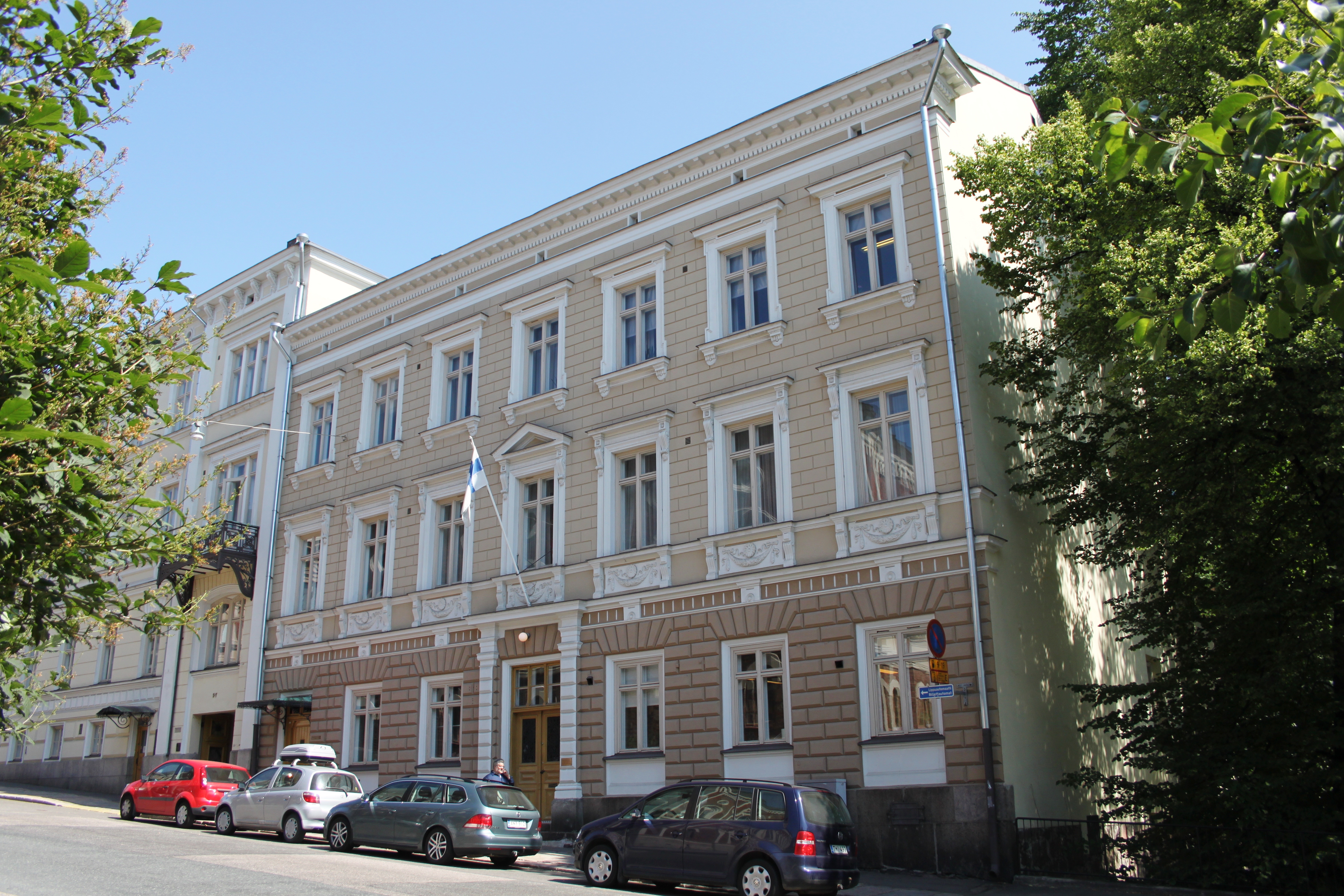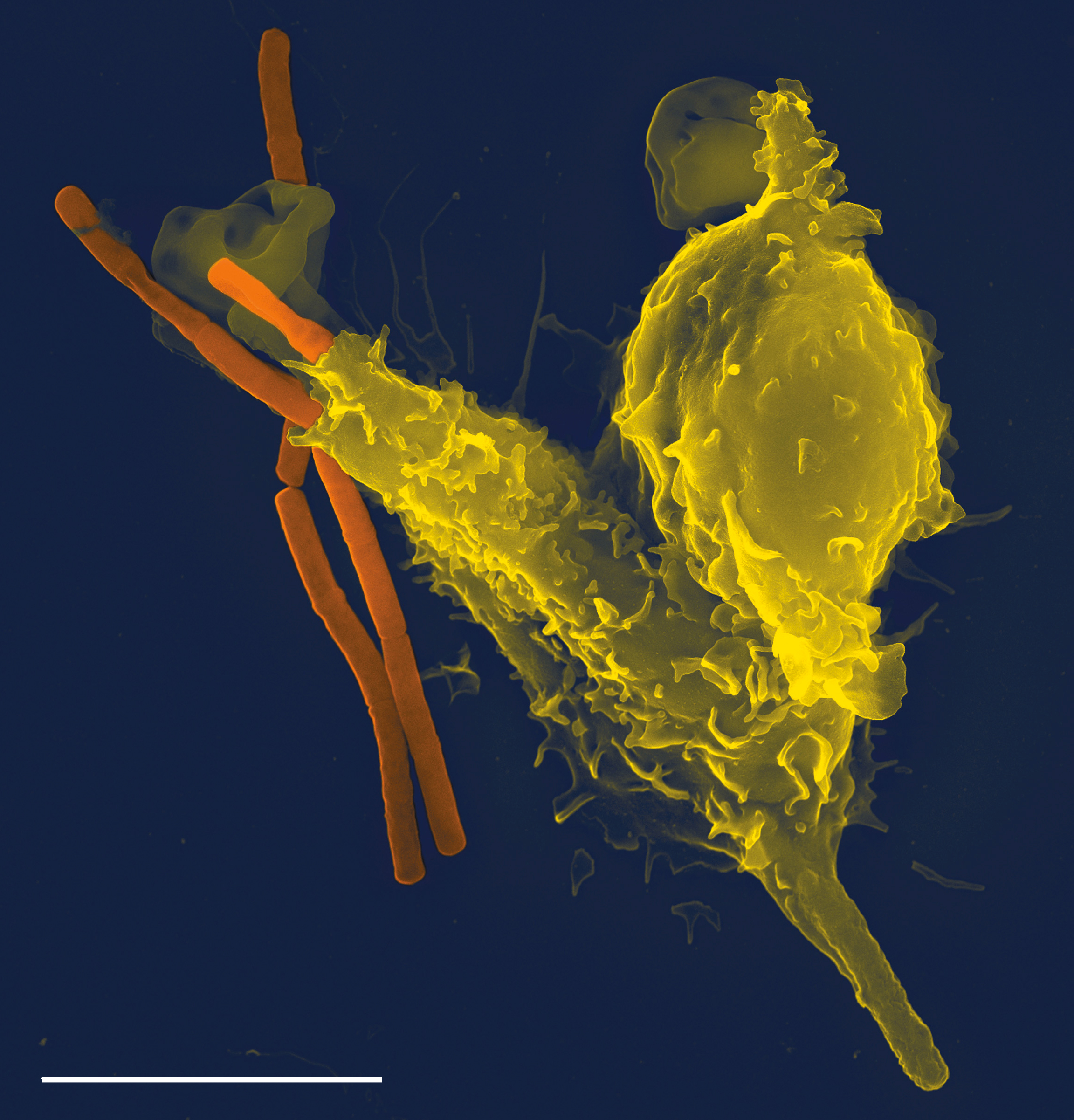|
Sirpa Jalkanen
Sirpa Jalkanen (born 28 February 1954) is a Finnish scientist, working in the field of biomedical and clinical medicine, at the University of Turku in Finland. Career Jalkanen was born in Jyväskylä, Finland. She is one of the world’s leading researchers in the area of lymphocyte migration in the human immune defence system. Jalkanen is an Academy Professor (2014-) in the Academy of Finland. She has served as Academy Professor on two previous occasions, in 1996–2001 and 2002–2006. During her term as Academy Professor, the focus of Professor Jalkanen’s research is on the mechanisms controlling the movement of cells in and out of lymph nodes. Her research is conducted as part of the Strategic Centre for Science, Technology and Innovation SalWe. She is a member of Finnish Academy of Science and Letters and the Norwegian Academy of Science and Letters. In 2008, she was awarded the Matti Äyräpää Prize The Matti Äyräpää Prize ( fi, Matti Äyräpään palkinto) i ... [...More Info...] [...Related Items...] OR: [Wikipedia] [Google] [Baidu] |
Jyväskylä
Jyväskylä () is a city and municipality in Finland in the western part of the Finnish Lakeland. It is located about 150 km north-east from Tampere, the third largest city in Finland; and about 270 km north from Helsinki, the capital of Finland. The Jyväskylä sub-region includes Jyväskylä, Hankasalmi, Laukaa, Petäjävesi, Toivakka, and Uurainen. Other border municipalities of Jyväskylä are Joutsa, Jämsä and Luhanka. Jyväskylä is the largest city in the region of Central Finland and in the Finnish Lakeland; as of , Jyväskylä had a population of . The city has been one of the fastest-growing cities in Finland during the 20th century, when in 1940, there were only 8,000 inhabitants in Jyväskylä. Elias Lönnrot, the compiler of the Finnish national epic, the ''Kalevala'', gave the city the nickname "Athens of Finland". This nickname refers to the major role of Jyväskylä as an educational centre. The works of the notable Finnish architect, Alvar Aalto, can ... [...More Info...] [...Related Items...] OR: [Wikipedia] [Google] [Baidu] |
Norwegian Academy Of Science And Letters
The Norwegian Academy of Science and Letters ( no, Det Norske Videnskaps-Akademi, DNVA) is a learned society based in Oslo, Norway. Its purpose is to support the advancement of science and scholarship in Norway. History The Royal Frederick University in Christiania was established in 1811. The idea of a learned society in Christiania surfaced for the first time in 1841. The city of Trondhjem had no university, but had a learned society, the Royal Norwegian Society of Sciences and Letters, established in 1760. The purpose of a learned society in Christiania was to support scientific studies and aid publication of academic papers. The idea of the Humboldt-inspired university, where independent research stood strong, had taken over for the instrumental view of a university as a means to produce civil servants. The city already had societies for specific professions, for instance the Norwegian Medical Society which was founded in 1833. However, these societies were open for both acad ... [...More Info...] [...Related Items...] OR: [Wikipedia] [Google] [Baidu] |
Academic Staff Of The University Of Turku
An academy (Attic Greek: Ἀκαδήμεια; Koine Greek Ἀκαδημία) is an institution of secondary or tertiary higher learning (and generally also research or honorary membership). The name traces back to Plato's school of philosophy, founded approximately 385 BC at Akademia, a sanctuary of Athena, the goddess of wisdom and skill, north of Athens, Greece. Etymology The word comes from the ''Academy'' in ancient Greece, which derives from the Athenian hero, ''Akademos''. Outside the city walls of Athens, the gymnasium was made famous by Plato as a center of learning. The sacred space, dedicated to the goddess of wisdom, Athena, had formerly been an olive grove, hence the expression "the groves of Academe". In these gardens, the philosopher Plato conversed with followers. Plato developed his sessions into a method of teaching philosophy and in 387 BC, established what is known today as the Old Academy. By extension, ''academia'' has come to mean the accumulation, d ... [...More Info...] [...Related Items...] OR: [Wikipedia] [Google] [Baidu] |
Finnish Medical Researchers
Finnish may refer to: * Something or someone from, or related to Finland * Culture of Finland * Finnish people or Finns, the primary ethnic group in Finland * Finnish language, the national language of the Finnish people * Finnish cuisine See also * Finish (other) * Finland (other) * Suomi (other) Suomi means ''Finland'' in Finnish. It may also refer to: *Finnish language * Suomi (surname) * Suomi, Minnesota, an unincorporated community * Suomi College, in Hancock, Michigan, now referred to as Finlandia University * Suomi Island, Western ... * {{disambiguation Language and nationality disambiguation pages ... [...More Info...] [...Related Items...] OR: [Wikipedia] [Google] [Baidu] |
Finnish Women Academics
Finnish may refer to: * Something or someone from, or related to Finland * Culture of Finland * Finnish people or Finns, the primary ethnic group in Finland * Finnish language, the national language of the Finnish people * Finnish cuisine See also * Finish (other) * Finland (other) * Suomi (other) Suomi means ''Finland'' in Finnish. It may also refer to: *Finnish language * Suomi (surname) * Suomi, Minnesota, an unincorporated community * Suomi College, in Hancock, Michigan, now referred to as Finlandia University * Suomi Island, Western ... * {{disambiguation Language and nationality disambiguation pages ... [...More Info...] [...Related Items...] OR: [Wikipedia] [Google] [Baidu] |
Living People
Related categories * :Year of birth missing (living people) / :Year of birth unknown * :Date of birth missing (living people) / :Date of birth unknown * :Place of birth missing (living people) / :Place of birth unknown * :Year of death missing / :Year of death unknown * :Date of death missing / :Date of death unknown * :Place of death missing / :Place of death unknown * :Missing middle or first names See also * :Dead people * :Template:L, which generates this category or death years, and birth year and sort keys. : {{DEFAULTSORT:Living people 21st-century people People by status ... [...More Info...] [...Related Items...] OR: [Wikipedia] [Google] [Baidu] |
Matti Äyräpää Prize
The Matti Äyräpää Prize ( fi, Matti Äyräpään palkinto) is a Finnish prize in medicine awarded by The Finnish Medical Society Duodecim since 1969. It is named after the dentist Matti Äyräpää, who was Duodecim's first chairman. In 2016, the prize money was €20,000. Recipients *1969 – Eino Kulonen *1970 – Kauko Vainio *1971 – Esko Nikkilä *1972 – Olli Mäkelä *1973 – Olavi Eränkö *1974 – Kari Penttinen *1975 – Lauri Saxén *1976 – Erkki Klemola *1977 – Kari Kivirikko *1978 – Kari Cantell *1979 – Bror-Axel Lamberg *1980 – Pirjo Mäkelä *1981 – Markku Seppälä *1982 – Reijo Vihko *1983 – Eero Saksela *1984 – Tatu Miettinen *1985 – Antti Vaheri *1986 – Olli Jänne *1987 – Mikko Hallman *1988 – Pekka Häyry *1989 – Pekka Halonen *1990 – Albert de la Chapelle *1991 – Leevi Kääriäinen *1992 – Tapani Luukkainen *1993 – Mårten Wikström *1994 – Juhani Jänne *1995 – Jouni Uitto *1996 – ... [...More Info...] [...Related Items...] OR: [Wikipedia] [Google] [Baidu] |
Finnish Academy Of Science And Letters
The Finnish Academy of Science and Letters (Finnish ''Suomalainen Tiedeakatemia''; Latin ''Academia Scientiarum Fennica'') is a Finnish learned society. It was founded in 1908 and is thus the second oldest academy in Finland. The oldest is the Finnish Society of Sciences and Letters, which was founded in 1838. Members The academy has a total of 328 seats for Finnish members. When a member of the academy turns 65 years, his seat is free for selection of a new member, but he remains a full member until death. The seats are divided into two sections Section of Science * Mathematics and Computer Science 28 members * Physics and Astronomy 26 members * Geosciences 24 members * Chemistry 21 members * Biology 22 members * Agriculture and Forestry 22 members * Medicine 46 members 189 seats Section of the Humanities * Theology and Religion 11 members * Philosophy and Aesthetics 12 members * Psychology and Pedagogy 14 members * History and Archaeology 17 members * Finno-Ugric Studi ... [...More Info...] [...Related Items...] OR: [Wikipedia] [Google] [Baidu] |
Finland
Finland ( fi, Suomi ; sv, Finland ), officially the Republic of Finland (; ), is a Nordic country in Northern Europe. It shares land borders with Sweden to the northwest, Norway to the north, and Russia to the east, with the Gulf of Bothnia to the west and the Gulf of Finland across Estonia to the south. Finland covers an area of with a population of 5.6 million. Helsinki is the capital and largest city, forming a larger metropolitan area with the neighbouring cities of Espoo, Kauniainen, and Vantaa. The vast majority of the population are ethnic Finns. Finnish, alongside Swedish, are the official languages. Swedish is the native language of 5.2% of the population. Finland's climate varies from humid continental in the south to the boreal in the north. The land cover is primarily a boreal forest biome, with more than 180,000 recorded lakes. Finland was first inhabited around 9000 BC after the Last Glacial Period. The Stone Age introduced several differ ... [...More Info...] [...Related Items...] OR: [Wikipedia] [Google] [Baidu] |
Academy Of Finland
The Academy of Finland ( fi, Suomen Akatemia, sv, Finlands Akademi) is a governmental funding body for scientific research in Finland. It is based in Helsinki. Yearly, the Academy administers over 260 million euros to Finnish research activities. Over 5000 researchers are working on projects supported by the academy. The Academy functions as a funding body only and is not a school. However, personnel funded by the Academy can use the title referring to it, e.g. professors will be called ''akatemiaprofessori''. Academy Professor funding has a term of 5 years. The Academy of Finland should not be confused with the Finnish arts and science school learned societies, The Finnish Academy of Science and Letters (''Suomalainen tiedeakatemia'') and The Finnish Society of Science and Letters (''Finska Vetenskaps-Societeten'') which are the two Finnish national honorary academies, for Finnish and Swedish-speaking scientists and scholars, respectively. For engineers, the two language-based h ... [...More Info...] [...Related Items...] OR: [Wikipedia] [Google] [Baidu] |
Human Immune System
The immune system is a network of biological processes that protects an organism from diseases. It detects and responds to a wide variety of pathogens, from viruses to parasitic worms, as well as cancer cells and objects such as wood splinters, distinguishing them from the organism's own healthy tissue. Many species have two major subsystems of the immune system. The innate immune system provides a preconfigured response to broad groups of situations and stimuli. The adaptive immune system provides a tailored response to each stimulus by learning to recognize molecules it has previously encountered. Both use molecules and cells to perform their functions. Nearly all organisms have some kind of immune system. Bacteria have a rudimentary immune system in the form of enzymes that protect against virus infections. Other basic immune mechanisms evolved in ancient plants and animals and remain in their modern descendants. These mechanisms include phagocytosis, antimicrobial peptides ... [...More Info...] [...Related Items...] OR: [Wikipedia] [Google] [Baidu] |



